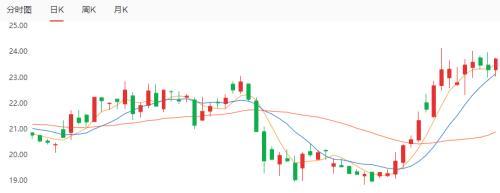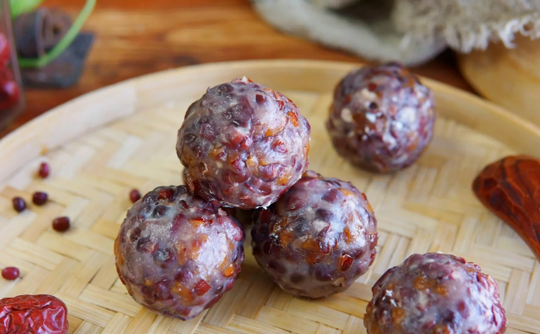21世纪经济报道记者吴斌、李莹亮 上海、深圳报道
On Tuesday, Shanghai officially entered "CIIE moment," which has become an annual feast of global trade cooperation, and the colorful billboards on the streets of Shanghai and bustling scenes at the exhibition halls put on vivid display of the strong vibrancy and attractiveness of the Chinese market.
A record high of 297 Fortune Global 500 and industrial leaders are present. Additionally, 186 companies and institutions are participating for the seventh consecutive year, earning the title of "full attendance" at the CIIE.
Chinese Premier Li Qiang said at the opening ceremony that China will open its doors wider to the outside world, regardless of how the international environment changes.
In their speeches at the ceremony, foreign leaders and heads of international organizations remarked that the CIIE has become an important international platform for promoting trade and investment and boosting opening up and cooperation.
They voiced their confidence in the Chinese economy and its prospect, and expressed willingness to advance cooperation with China in jointly building the Belt and Road as well as in areas such as economy, trade, connectivity and green development, maintain free trade, and promote equality, progress and sustainable development in the world.
Harry Wu, our correspondent in Shanghai, is now at the CIIE. Today in this episode we’ve invited Harry to chat with us and share his thoughts on the grand event. And he’s also brought us some guests.
Stephanie: Hi Harry, thank you for joining the program.
Harry: Hi Stephanie. Thanks for having me.
Stephanie: So Harry, you’re at the 7th China International Import Expo now. It’s also the biggest edition in terms of size and participation since it inaugurated in 2018. What’s your first expression of the event this year?
Harry: I’m here at the media center for seventh CIIE. There are so many correspondents here that we have to come very early to get a seat to work or a seat to eat. At the booths of National Exhibition and Convention Center , all I can see is people looking for new opportunities. The huge crowds also benefit from China's visa-free policy. I see exhibitors from France, Germany, Italy, Netherlands, Spain, Malaysia and so on.
At Malaysia Pavilion, the crowds wait in long lines to taste fresh Musang King durian from Malaysia. Unlike previous shipments that were frozen or processed, these fresh durians are tree-ripened, requiring fast logistics to ensure their quality. Musang King durian can now be enjoyed fresh, offering Chinese consumers a unique and elevated taste experience.
Stephanie: You’ve been covering to the CIIE for the fourth year now. What struck you the most this year? What are the highlights?
Harry: What impressed me most is the record participation. Well, you know the numbers. Let me give you a specific example. Marking 70 years of diplomatic relations between Norway and China, Norway has established its first national pavilion at the seventh CIIE, where Norwegian exhibitors aim to strengthen bilateral cooperation and explore new opportunities. Norway’s Minister of Fisheries and Ocean Policy, Marianne Sivertsen N?ss, visited China and attended the CIIE. She made Chinese dumplings to celebrate Lidong, the start of winter on Chinese lunar calendar. There are so many firsts and stories this year.
Stephanie: The CIIE is often seen as a gateway to China. Every year during the event, the world is coming to China and it underlines China's essential role in the global economy. What do you think the CIIE mean for China?
Harry: With a population of over 1.4 billion, China has a diverse range of consumer groups, each with a massive scale, which translates into enormous demand for products and services. The tremendous potential and increasingly open market have brought tangible returns to foreign companies that are expanding their presence in China. The keen interest from global participants has shown the growing influence of the CIIE and the attraction of the Chinese market. It also highlights China's efforts to push forward the building of an open world economy.
For example, during the CIIE I talked to Dr. David Blair, senior economist of Alliance of Global Talent Organizations and Professor of Economics at the Eisenhower School, National Defense University, Washington, DC. He thinks the CIIE is a signal of China’s opening up to the world. Take a listen.
David: I think it's a signal to the world that China is open for trade. I think the main thing is that it's signaling China is not closing itself off, and it’s going to continue the reform and opening-up policies.
Stephanie: Harry, you’ve been talking with a lot of exhibitors, what do they think about this year’s expo?
Harry: Yes, they are all very excited to be here. This is Sigmund Bj?rgo, director of the Norwegian Seafood Council in China. Norway made a debut at this year's CIIE by establishing a national pavilion for the first time, tapping into the vast potential of the Chinese market. The pavilion features a wide range of industries, including maritime and energy, health and nutrition, design and lifestyle, food and agriculture, as well as seafood and consumer goods.
Sigmund: So the industry is at the CIIE to promote the Norwegian seafood in general, and of course it’s the key species that caught the highest attention - salmon, mackerel, different types of shellfish, and of course the Norwegian Arctic cod. But of course the biggest is salmon. It has grown tremendously in the past years and is still continuing to grow.
At the same time, China is still a young market for salmon, so there are many new industrial and customer players that are interested in searching for Norwegian salmon.
If you look at the global perspective, China is the eighth biggest salmon market in the world. But that is for now. We expect it to grow and for China to climb up the rank and grow into one of the biggest salmon market in the future.
Sigmund: This is the third time the Norwegian Seafood Council joined the CIIE. The past two years has been with a pure Norwegian seafood pavilion together with Norwegian exporters. This year due to the celebration of the 70th anniversary of diplomatic relationships , we have decided to join the Norwegian pavilion for the first time and bring in the both the seafood companies and also other Norwegian companies. We expect many visitors there this year and we are already thinking about next year. I expect to be present next year to build on Norwegian-Chinese seafood collaboration.
Sigmund: It is to meet the major buyers, the major industrial players, but also to show Chinese authorities that we are here we want to invest in the Chinese market. And we believe that the Norwegian seafood still have a room for growth in China.
Harry: And here we also have Alfonso Alba, CEO of Bayer Crop Science for Greater China. BCS is one of the three divisions of Germany-headquartered life science enterprise Bayer AG.
Alfonso: I’ve always loved to come here because this provide us an opportunity to share with all the stakeholders in the Chinese government, customers, and colleagues from the industry.
What Bayer is doing in innovation is how our innovation contribute to the development of agriculture in China and how our technologies contribute to modernizing China’s agriculture. So this is an incredible opportunity to talk to everyone about what we do.
Harry: Having heard voices from foreign companies and economist, the Chinese market is still one of the best choices for foreign companies. It's a win-win situation.
Stephanie: Harry, thanks again for joining CBN’s special coverage of the 2024 CIIE.
Harry: My pleasure.
Stephanie: And thanks everyone for listening. Have a nice day and until next time. Bye.
郑重声明:此文内容为本网站转载企业宣传资讯,目的在于传播更多信息,与本站立场无关。仅供读者参考,并请自行核实相关内容。

-
 回购+自购,真金白银进场护盘近期A/H两地股市表现不佳,对于股市何时触底,没有人知道,但近期无论是上市公司本...
回购+自购,真金白银进场护盘近期A/H两地股市表现不佳,对于股市何时触底,没有人知道,但近期无论是上市公司本... -
 “90后”海归村干部抗疫日记:多幸运我有“90后”海归村干部抗疫日记:多幸运我有个“我们”题:“90后”海归村干部抗疫日...
“90后”海归村干部抗疫日记:多幸运我有“90后”海归村干部抗疫日记:多幸运我有个“我们”题:“90后”海归村干部抗疫日... -
 “宁王”大跌40%!“聪明钱”爆买20亿本周,A股一度大幅调整,成交量屡创年内新低。北上资金先抑后扬,前半周随市场波动而...
“宁王”大跌40%!“聪明钱”爆买20亿本周,A股一度大幅调整,成交量屡创年内新低。北上资金先抑后扬,前半周随市场波动而...
-
CBNSpecial丨SFCCorresponden
2024-11-08 20:47
-
比亚迪海鸥领跑新能源,日产轩逸稳居燃油车销冠国内乘用
2024-11-08 20:41
-
换装1.5T发动机新款高尔夫高尔夫GTI首发
2024-11-08 20:02
-
第七届进博会“未来感”十足,进博会上处处有“智慧”
2024-11-08 19:32
-
财政部:支持房地产市场健康发展的相关税收政策近期即将
2024-11-08 18:56
-
余承东:智界新S7将和史上最强大的Mate一起发布
2024-11-08 18:45
-
苏-57首席试飞员珠海试驾东风猛士917,现场高呼“
2024-11-08 18:30
-
解热镇痛药怎么选?专家解答
2024-11-08 18:02
-
安利赴约2024进博会:加码中国市场,领航健康未来
2024-11-08 18:00
-
美国大选义乌或成最大赢家,我国今年新增跨境电商相关企
2024-11-08 17:56
-
医学营养在生育与孕期的核心守护力
2024-11-08 17:28
-
中教文化&中字央企强强联合:封闭式内训,打造注安人才
2024-11-08 17:22
-
乐山市商业银行:“千亿”再出发如何再攀新高?
2024-11-08 17:17
-
双十一购物盛宴:电商平台的战略调整与消费者需求变化的
2024-11-08 17:13
-
华太极光|引领太赫兹革命,塑造未来科技先锋
2024-11-08 16:59





















